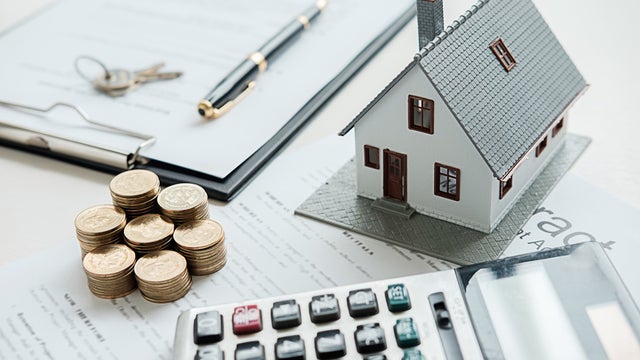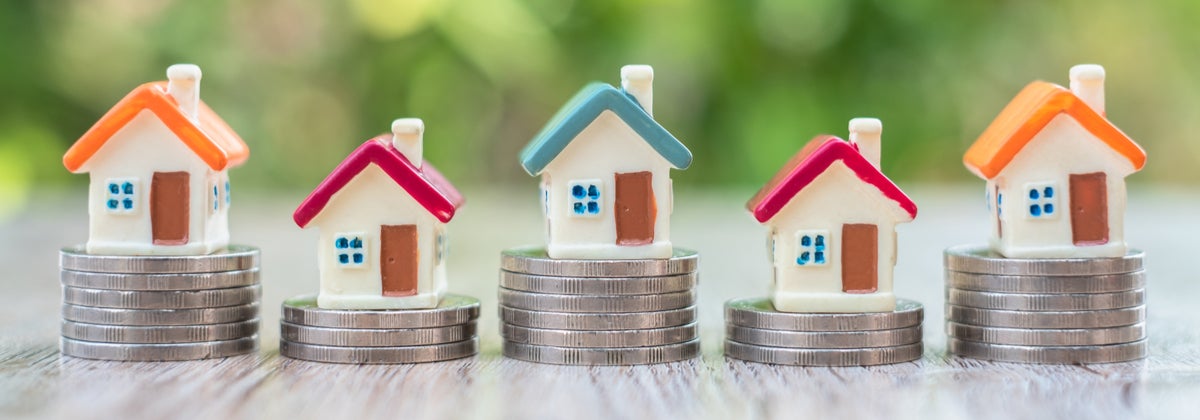When purchasing an investment property, houses and apartments each have their pros and cons. So, what are they and what do you need to consider before investing in a house or an apartment?
Investment Property: House vs Apartment. In this article, we cover:
- Pros of investing in a house
- Cons of investing in a house
- Pros of investing in an apartment
- Cons of investing in an apartment
- Rental yield explained
- Should I invest in a house or an apartment?

Investing in a house: Pros
While investing in a house may offer capital growth, it can also come with drawbacks. Here are some of the major pros and cons:
1. Higher capital growth
Houses usually offer greater long-term capital growth than apartments, as land often appreciates over time and houses tend to have more associated land than apartments. However, it’s important to note that this isn’t always the case. For example, a block of land located in rural NZ is unlikely to be more valuable than the floor space of a penthouse on Auckland Harbour. That’s why it’s always important to consider location and market conditions when investing.
2. Opportunities to renovate and subdivide
Since you control 100% of the property if you are a sole investor in a house, you can go ahead and make strategic improvements to increase its value. For example, you may be able to improve your house with renovations or subdivide the land (provided you have council approval), without needing to request permission from a body corporate or other residents.
3. Consistent rental returns
Houses can attract tenants, such as families and professional couples, who are reliable and want to stay in a certain suburb for schooling or work opportunities long-term. Tenants who are pet owners may also choose to rent a house, due to added flexibility in the lease terms. Body corporate by-laws for apartments, in contrast, can restrict or limit pet ownership (e.g., not allowing prospective tenants or owners to have pets, or setting weight limits on dogs). Research shows pet owners, on average, have a longer tenancy length.
Investing in a house: Cons
1. Price
Houses are often more expensive to buy than apartments and units in the same area. This can be a deterrent for some buyers, including first-time property investors or anyone looking to diversify their investment portfolio.
2. Lower rental yield
Rental yield expresses the amount of money you make on an investment property, compared to its purchase price, as a percentage. It’s a valuable tool for calculating your return on investment.
As a rule of thumb, houses can have a lower rental yield than apartments and units, even though they usually have greater capital growth. For more data on this see below. So, a house might not be the best option if you need rental income for cash flow.
3. Maintenance costs and upkeep
When it comes to houses, you have to pay all of the maintenance and upkeep fees, as well as insurance premiums for the building itself, if you choose to take out a policy. You should ensure the home is structurally sound, including getting a thorough building inspection prior to purchase.

Investing in an apartment: Pros
Apartments are an attractive option for investors, as they are usually more affordable than houses. However, there are many factors to consider when buying an apartment.
1. Affordable options
Apartments and units can offer an affordable entry point into the market, in areas that may be beyond your budget if you were looking at houses. The lower outlay can also mean fewer risks and more investment choices for you.
2. Supply and demand
Growing numbers of New Zealanders are living alone, and it’s coming at a financial and social cost. The most recent census data shows that 405,000 people now live alone, 36,000 more than back in 2013. If more and more smaller NZ households rent, there may be stronger renter demand, higher rental yields and more investment security for some apartment owners in the long term.
3. Maintenance costs and upkeep
A big advantage of owning an apartment or unit is that everyone in the building or complex shares the cost of insurance, maintenance and upkeep in the form of a strata title. An owners’ corporation, also known as a body corporate, manages and maintains the common areas of a strata-titled property. Paying annual fees and special fees (also known as special levies) such as body corporate fees may make your property easier to manage. However, there are some costs that won’t be paid by body corporate fees, such as contents insurance; council rates; maintenance, utility costs and repairs and improvements to your private-use property.

4. Potential for multiple assets
Depending on your budget, you could potentially buy two apartments or units for the same price as one house. This could provide you with higher rental income, future flexibility and lower risk, while also diversifying your investment portfolio at the same time.
Investing in an apartment: Cons
1. Lower land value
Apartments and units generally have a much lower proportion of associated land, which means they often don’t offer as much capital growth as houses. You may not make as much profit when you sell over the same period of time. However, the long-term returns from any property are influenced by many other wider factors, too, such as location, comparable sales, market trends, condition and property characteristics.
2. Maintenance costs and upkeep
You may notice this is listed on pros and cons as it can be considered to be both. While paying ongoing body corporate fees eliminates having to organise and pay for some unplanned repairs, it can also be an expensive ongoing outlay. This is especially true if the complex includes additional facilities, such as a gym, sauna, tennis court or swimming pool.
3. Lack of control
Most apartments and units are part of a strata title, so if you want to make any changes or renovations, you need to get permission from the body corporate. This lack of control can put limitations on maximising the value and use of the property.
4. Future developments
The number of apartments and units in an area can increase significantly over several years. If you own an existing apartment or unit in an oversupplied area, you could potentially suffer from lower rental yield, renter demand and capital growth.

Rental yield explained
Rental yield is the profit you generate each year from your investment property, as a percentage of its value. To calculate a rental yield, the weekly rent is multiplied by 52 weeks and then divided by the purchase price.
However, this is only your gross yield, before any costs are taken into account. Net yield is the amount of profit you earn once all the other costs associated with the property have been deducted. These include rental service fees, repairs, rates, mortgage repayments, insurance, water bills, etc.
Choosing an investment property based on high rental yield alone isn’t always the best option, as many factors impact profitability. For example, some high-yielding properties can have no capital growth, little cashflow or increased risk, depending on factors like location, property prices, infrastructure, economy, employment and vacancy rate.
Final thoughts: House or apartment?
Ultimately, there’s no one-size-fits-all answer to this question. It really depends on your overall investment objectives and strategy, the housing demand and supply trends in the market, the location of the property and what you can afford.
The most important thing is to do your research and consider speaking to as many people with relevant experience and expertise, such as real estate agents, accountants and seasoned property investors, as you can.
You may also want to ensure your finances are in order. Steps such as doing a budget and checking your credit score, as well as considering home loan pre-approval, may help you to make your investment dreams a reality. If you need advice, it could be a good idea to speak with a financial adviser.
If you’re in the market for a home loan, to read more about our five-star home loan awards click here, or to compare rates using our free mortgage comparison tool hit the button:
Compare home loan rates for free with Canstar!
Enjoy reading this article?
You can like us on Facebook and get social, or sign up to receive more news like this straight to your inbox.
By subscribing you agree to the Canstar Privacy Policy




Share this article